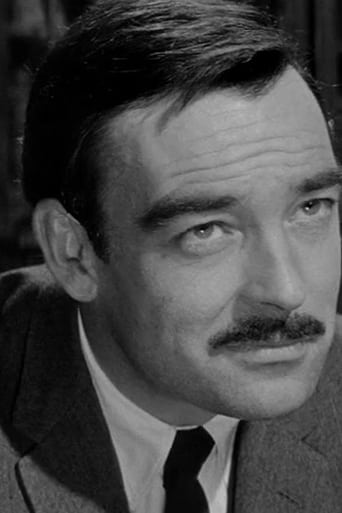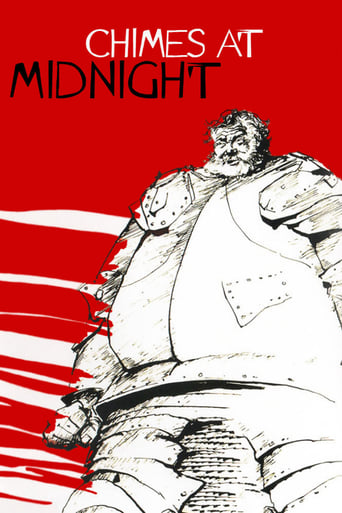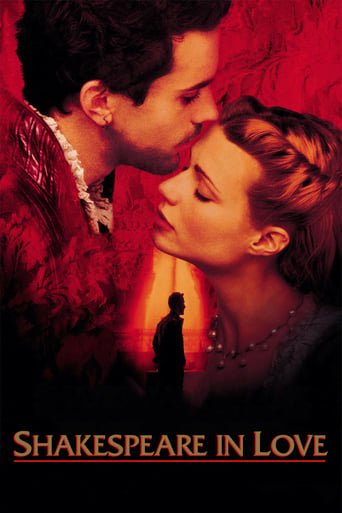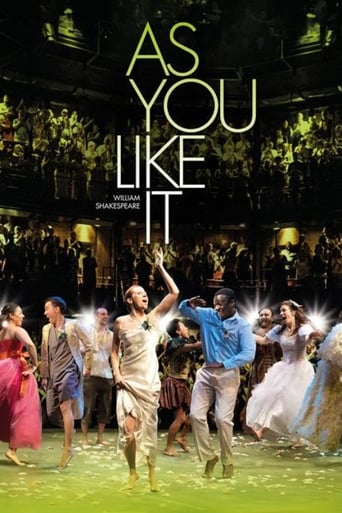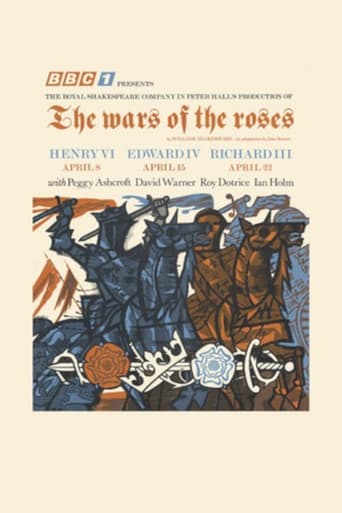Cymbeline (1982)
Cymbeline, the King of Britain, is angry that his daughter Imogen has chosen a poor (but worthy) man for her husband. So he banishes Posthumus, who goes to fight for Rome. Imogen (dressed as a boy) goes in search of her husband, who meanwhile has boasted to his pal Iachimo that Imogen would never betray him. And Iachimo's determined to prove him wrong.
Watch Trailer
Cast


Similar titles
Reviews
Simply A Masterpiece
Fresh and Exciting
The plot isn't so bad, but the pace of storytelling is too slow which makes people bored. Certain moments are so obvious and unnecessary for the main plot. I would've fast-forwarded those moments if it was an online streaming. The ending looks like implying a sequel, not sure if this movie will get one
There's no way I can possibly love it entirely but I just think its ridiculously bad, but enjoyable at the same time.
I opted, again, for what the powers that be on the internet call the most faithful adaptation of Shakespeare's Cymbeline, and that is certainly what I got when I watched Elijah Moshinsky's 1982 made for T.V. version. Part of BBC Shakespeare; Cymbeline brought together Richard Johnson, Hugh Thomas, and Helen Mirren to tell the tale of the angry King of Britain whose daughter has chosen to marry a poor man, below her class level. Reeling from this betrayal, King Cymbeline banishes his new son-in-law who eventually goes off to fight for Rome in the army. Exploring themes familiar in works of Shakespeare such as, appearance v. reality, youth and age, and forgiveness; Cymbeline is a quintessential work of the Bard, even if not one of his more famous pieces. The daughter of King Cymbeline, of Britain; Imogen (Helen Mirren) neglects her father's wishes of marrying nobility and instead marries Posthumus (Michael Pennington). enraged at the feeling of disloyalty from his daughter, Cymbeline banishes Posthumus to Italy where he eventually fights for Rome. While in Italy, Posthumus meets a man named Cloten who believes that all women are just waiting to be seduced. Cloten wagers with Posthumus that he can travel to the British court and woo Imogen. Remaining steadfast to her husband, Imogen refuses Cloten's advancements. Realizing he will not successfully woo Imogen, Cloten hides in a trunk taken to Imogen's room one evening and watches her sleep, taking a bracelet from Posthumus on his way out of her chambers. Cloten then returns to Rome to brag about his seeming victory to Posthumus. Posthumus becomes enraged with his wife's alleged infidelity and sets orders to have her killed. Saved by a servant, Pisanio (John Kane) who believes in Imogen's innocence, he urges Imogen to dress as a man and infiltrate the Roman army in order to set things right with Posthumus. Imogen's task becomes more complicated when Posthumus, feeling regret, believing to be responsible for the death of his wife switches uniforms and begins fighting with the British army to try and redeem himself. Shakespeare crafts a story that is never quite what it seems to be, even to the end.As noted, this presentation is part of a BBC Shakespeare series and looks very much like a play on film. It needs to be mentioned that, at times, this does not play to the advantage. Oftentimes the set restrictions of a television program leave the actors seeming cramped and restricted on-screen. Other times, however, the closeness played to the production's advantage. For instance, in the touching scene between Imogen and Posthumus before his leaving for Italy, their close proximity added to the love they shared. The farewell scene culminated in a beautiful shot of the newlyweds centered against a window. This shot was wonderful and provided a nice foreshadowing of the separation they would experience upon Posthumus' departure. What a treat to see a work of Helen Mirren's from the 80's. I'm really only familiar with her more recent work, and now I can safely say that she was as good an actress as she ever was in 1982. The film moved a bit slow for me, but the story is captivating and Mirren's acting will keep you hooked until the end.Appearance v. reality, a theme Shakespeare explored throughout much of his work, was heavily relied upon in Cymbeline. This is most glaring in the beginning of the film. Even though the King comes off as an alpha male, attempting to thrust his will upon his daughter, he has relinquished all ruling power to the Queen. Throughout the film, the Queen gives off the appearance of siding with Imogen, yet all the while working against her. Of course, later in the film, Imogen dresses as a man attempting to give off the appearance of an Italian soldier, while in reality being a regal woman married to Posthumus. The ideas of youth v. age are also explored throughout the production. The King, living isolated from even his own family, forgets (or, rather, ignores) what it is like to fall in love, and is only thinking of class and tradition when encouraging his daughter to marry the right man. The movie really rests upon each character's ability to forgive. Imogen seeks forgiveness from Posthumus because she is innocent of what he believes her to have done. Posthumus also seeks forgiveness from Imogen for doubting her and trying to have her killed. Although not one of his more famous works, Cymbeline has a rich story that remains one of my personal favorites.
Cymbeline is often seen as problematic, and it not among those of Shakespeare's works which receive the most attention. "The Tragedy of Cymbeline" features Cymbeline as a smaller character who end the play joyous and alive, more clement than before after having realized his error. The plot is a bravura tangle -- a tour de force of Shakespeare's power of creating mazes of deception and misconception, then resolving everything in a symphonic final scene. In a sense, it is plotted like a Shakespearean comedy but otherwise written like a Shakespearean tragedy (in the scene where Imogen decides to disguise her self as a man -- as so many of Shakespeare's comedic heroines seem to -- she also earnestly and poetically begs Pisanio to kill her), becoming interestingly uncanny.Elijah Moshinsky, in directing this production, takes the wise move of playing the script deadly straight (except or course for definitely comic elements such as Cloten's self-love) and wringing as much drama from the play as possible. Largely it works very well, and Cymbeline is, as it should be, an emotionally powerful journey. The effect is aided by good atmosphere and appearance -- these BBC TV productions sometimes show humble origins, but here the appearance of a bleak, and largely empty castle where many scenes take play, and that of similar landscapes outdoors, enhances the mood. The greatest positive attribute, though, is a cast with many extraordinary performances. Helen Mirren headlines and is excellent, making Imogen always believable -- a strong person overwhelmed by circumstances. Michael Gough is wonderful as Belarius in a very sensitive performance that makes the character palpably guilt-ridden, but loving and possessed of pride (this performance makes me wish Michael Gough had done much more Shakespeare). Robert Lindsay is very memorable as Iachimo, taking a rather upsetting sensual pleasure in all his villainy. Richard Johnson is notable too with a fairly eccentric but very good performance as a grumpy, sulky, and cantankerous King Cymbeline, and Claire Bloom is chilling as his villainous wife. Sometimes the pace lags, but it is worth this for the attention paid to hitting all the vital moments of this play. I'm glad the only full screen performance we have of this play is a good one, sensitively directed and blessed with excellent acting from many hands.
The BBC's intention is to put Shakespeare's plays on the screen, not to 'improve' them. Certainly I could argue that a little adaptation here or there, a few edits impossible on stage, and armies fighting out battles in outside locations would make the thing more enjoyable, but it really would be wrong for the BBC to have done this, even if they could afford to. What we have here is what Shakespeare wrote and we see it as he intended, with the limitations but also the opportunities for imaginative descriptions for an actor to get his teeth into. 'Cymbaline' is too long a play and relies as often is the case in Shakespeare on luck, mix-ups and quickness to mistrust. Unfortunately it does it rather lumberingly at times. And how anyone could mistake Helen Mirren for a boy, let alone her own father not recognise her is dodgy enough; the BBC could at least have disguised her a little more! Overall the production was good, with the performances of Mirren and Gough and Jesson particularly working for me. I thought Lindsay good enough, but Pennington sadly subdued on all but a few occasions. In short, a play I'm not fond of was done almost as well as I could imagine it being done.
It would be much easier to make a laundry list of complaints about how "Shakespeare didn't know what he was doing," or "everyone and everything bores me," but let's do it the hard way and see what's here.This is one of those late plays that academics can't classify as a tragedy, comedy or history. This is not a mistake of Shakespeare's, but a deliberate choice. "Cymbeline" is crammed full of incident, sprouts multiple strands running off in all directions, and miraculously pulls itself together at the end. In fact, some critics refer to "Cymbeline," "Pericles" and "The Winter's Tale" as the Miracle Plays.So, assuming just for the moment that Shakespeare did know what he was doing, how well has he been served here? Helen Mirren as Imogen is herself a miracle, "in the moment" at every moment, totally committed to her character. John Kane and the ubiquitous Paul Jesson bring similar conviction to Pisanio and Clothen, respectively.Michael Gough surprises with his model delivery of Shakespeare's language - clear and natural. More likely to be remembered for some spectacularly grungy horror movies, Gough has done his own reputation a disservice with his enthusiasm for constant work no matter how scuzzy the script. This is his only appearance in the Shakespeare series, and that's a real pity.Richard Johnson rasps and scowls well as the King (check out his IMDb.com bio for a few surprises). Claire Bloom flirts with a Disney concept of an evil stepmother without quite going over the line. Michael Pennington acts everything that can be acted about Posthumus without the gift of making you care.Robert Lindsay, so grand in comic roles in "Much Ado" and "Twelfth Night," here is the inverse of Helen Mirren, without a single moment of truth as Iachimo - a fumbling, external attempt at a villain by an actor outside his natural range.Elijah Moshinsky's direction is of a piece with others of his in this series. Ignoring all Iron-Age references in the script (Julius Caesar is not long dead), Moshinsky's fascination with Old Masters' paintings gives us a coherent through line to the production, with a particularly wonderful mountain snow set designed by Barbara Gosnold. Occasionally the director provides a striking image, as when one character converses with the mirror reflection of another.However, Moshinsky's editing is occasionally clumsy. When Iachimo presents his false proofs to Posthumus, the camera stays on one character or the other for far too long, and often the wrong one. We strain to see the other character, and aren't allowed to. This is distracting, maladroit, and just not good enough.However "Cymbeline" has much to recommend it, and Helen Mirren's performance alone is worth the price of admission.





